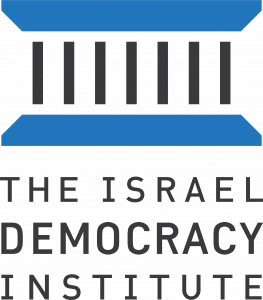Amichai Cohen, Professor of Law at Ono Academic College and Senior Fellow at the Israel Democracy Institute discusses his new book The Constitutional Revolution and Counter-Revolution, and explains the changing role of the High Court of Justice in maintaining the checks and balances of Israeli democracy.
This episode is made possible by the Israel Democracy Institute, an independent center of research and action dedicated to strengthening the foundations of Israeli democracy.






On the refugee cases:
The Court was not involved with the ingress of refugees, but how they are treated upon entry, no matter how entered. So, as the speaker notes, ingress itself was highly controlled by the State. But this is good for the Court, for its decisions on treatment of present refugees is, in actual impact, light on society. If the Court could assert strong judicial striking anywhere, it should be here. Because of the then refugee camp, ultimate closing of it would be dramatic State limitation without affecting society greatly. Yet the Court, in I think the third review, backed off. This, I think, is when judicial review went into retreat, for fear of the legislative veto of Court decision.
If full Court independence cannot be declared (by them) on this issue, a fortiori not occupation policy.
Good to hear the 2nd Constituent Assembly was not elected to covert itself into the Knesset, but the speaker is silent on what that actually means: that the legislature then becomes sole determiner of its own checks, which is absurd–or, if you like, a con.
If you want a legislative override clause, call a constitution assembly, put it in a true document, the submit that to the electorate for all or nothing vote. A Knesset defined clause could be revoked at any time; it is no abstract check, relying to directly on immediate political process as check. A constitution is designed to work above such political process. As you unfortunately know my view of the constitutional status of your Declaration as the only way out of crisis, I defer, save to say asserting that fiat should be the last fiat of the Court, announce any time it uses the Declaration that a convention should be called.
This is my second attempt; either the first one burped as the interview was still running, or I’ve been, arrrrgh, canceled.
The speaker says that the refugee cases weren’t so important for the State managed to close down refugee immigration anyway. But I think this made the cases of present refugees ideal for expanding court judicial review, for the practical impact of court nullification would be light (as in the US Marbury v Madison), while the precedent in scope of review could go far, closing down the internment camp. Alas, the Court, in its third review, capitulated, thereby losing this opportunity. Preventing entry is distinct from how one treats those already entered. I think those cases, coupled with the amazing history of the camp, need article review.
If the Court will not stand up on the limited impact refugee cases, how will it on great occupation cases?
I like that the speaker notes the 2nd Constituent Assembly was not elected to be a legislature, but turned itself into one. yet he failed the evident conclusion, that a legislature cannot be expected to constrain itself. Such a process relies on internal legislative politics for self checks, but a constitution should be above those. This means that all Basic Law alterations of the Israeli constitution are fundamentally infirm. I have argued too many times that the Declaration is a natural constitutional document. If the Court so proclaimed, it could, whenever using its clauses, call for a constitutional convention with electorate final affirmation of a drafted document.